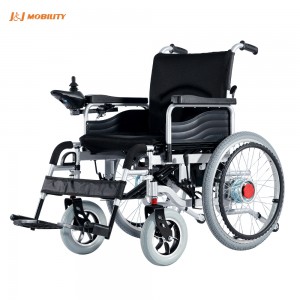Can You Use a Mobility Scooter if You’re Not Disabled?
The question of whether a mobility scooter can be used by individuals who are not disabled touches on legal, ethical, and practical concerns. Mobility scooters are primarily designed to assist individuals with disabilities or limited mobility. However, the idea of using a mobility scooter for convenience purposes, even without a disability, sparks debate. This article explores various perspectives on this issue.
Understanding Mobility Scooters
Design and Purpose: Mobility scooters are engineered to provide a convenient mode of transportation for those with mobility challenges. They feature electric drive systems, stable seating, armrests, and user-friendly controls to ensure safety and comfort. Designed to be lightweight and foldable, these scooters offer users the ability to navigate environments where walking might be difficult or impossible. They also facilitate greater independence in social and daily activities.
Legal and Ethical Considerations
Legal Issues: In many jurisdictions, mobility scooters are classified as assistive devices specifically for individuals with disabilities. Using a mobility scooter without a disability could be seen as misusing a resource intended for those with genuine mobility needs. This misuse might also affect the availability of these scooters for individuals who truly need them.
Ethical Concerns: From an ethical standpoint, using a mobility scooter without a disability may be viewed as unfair, as it could deny access to those who rely on these devices for their daily mobility. This perspective emphasizes respecting the intended use of mobility scooters and ensuring that they are available for individuals with legitimate needs.
Convenience vs. Public Perception
Convenience Factor: Some individuals argue that using a mobility scooter for convenience—such as reducing fatigue from walking or carrying items—can be practical. Mobility scooters often come with storage space, making them useful for tasks like shopping. However, this convenience must be weighed against the potential for misunderstanding and dissatisfaction from others who might perceive this use as inappropriate.
Public Acceptance: The use of mobility scooters by non-disabled individuals can lead to negative reactions, including perceptions of disrespect towards people with disabilities. Public acceptance is an important consideration, as using a mobility scooter in a non-traditional manner may be seen as disregarding the needs of those who genuinely require these devices.
Exploring Alternatives
Alternative Transportation Options: For non-disabled individuals seeking ease of movement, alternative modes of transportation such as bicycles, scooters, or e-bikes might be more appropriate. These options provide similar convenience without the ethical concerns associated with mobility scooters, which are specifically designed for those with mobility challenges.
Conclusion
Using a mobility scooter when you are not disabled is a complex issue involving legal, ethical, and public perception factors. While the convenience of a mobility scooter is undeniable, it is crucial to respect the primary purpose of these devices and consider the impact on those who genuinely need them. Non-disabled individuals might explore alternative transportation options to meet their needs without causing potential controversy. Ultimately, personal choices should balance convenience with respect for resources designated for those with disabilities.
Respecting the intended use of mobility scooters and considering alternative transportation methods can ensure that these valuable resources remain available for individuals who need them most.
Post time: Sep-10-2024


